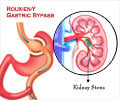High-flux hemodialysis (which removes large toxins) reduces the risk of premature death in many patients with chronic kidney disease (CKD), according to a study appearing in the March 2009 issue of the Journal of the American Society Nephrology (JASN). The results suggest that this procedure could be beneficial for those with poor prognoses and those with diabetes.
In patients with CKD, toxins accumulate in the blood because the kidneys lose their ability to eliminate these substances sufficiently. CKD patients undergo either high-flux or low-flux hemodialysis to clear these toxins from the body (high-flux membranes have larger pores that allow for the removal of toxins of greater molecular size). While epidemiological studies have indicated that treatment with high-flux hemodialysis improved survival, the true potential of this treatment on prolonging life has not been clearly determined.Francesco Locatelli, MD (A. Manzoni Hospital, Lecco, Italy), and his colleagues in eight European countries conducted a clinical trial to investigate the effect of high-flux hemodialysis on patient survival. In a randomized clinical trial called the Membrane Permeability Outcome (MPO) study, they enrolled 738 hemodialysis patients and assigned them to either low-flux or high-flux hemodialysis.
Patients were followed for 3 to 7.5 years; in the entire study group the researchers did not detect a significant survival benefit with either high-flux or low-flux hemodialysis, but the use of high-flux membranes conferred a significant survival benefit in higher-risk patients. In addition, patients with diabetes showed a survival benefit with high-flux dialysis.
These findings could lead to potentially valuable clinical benefits for patients with CKD. However, because the benefits in diabetic patients were found only after a post-hoc analysis of the data, Dr. Locatelli's team noted that their results in diabetic patients need to be confirmed by other clinical trials.
Source-Eurekalert
SRM













